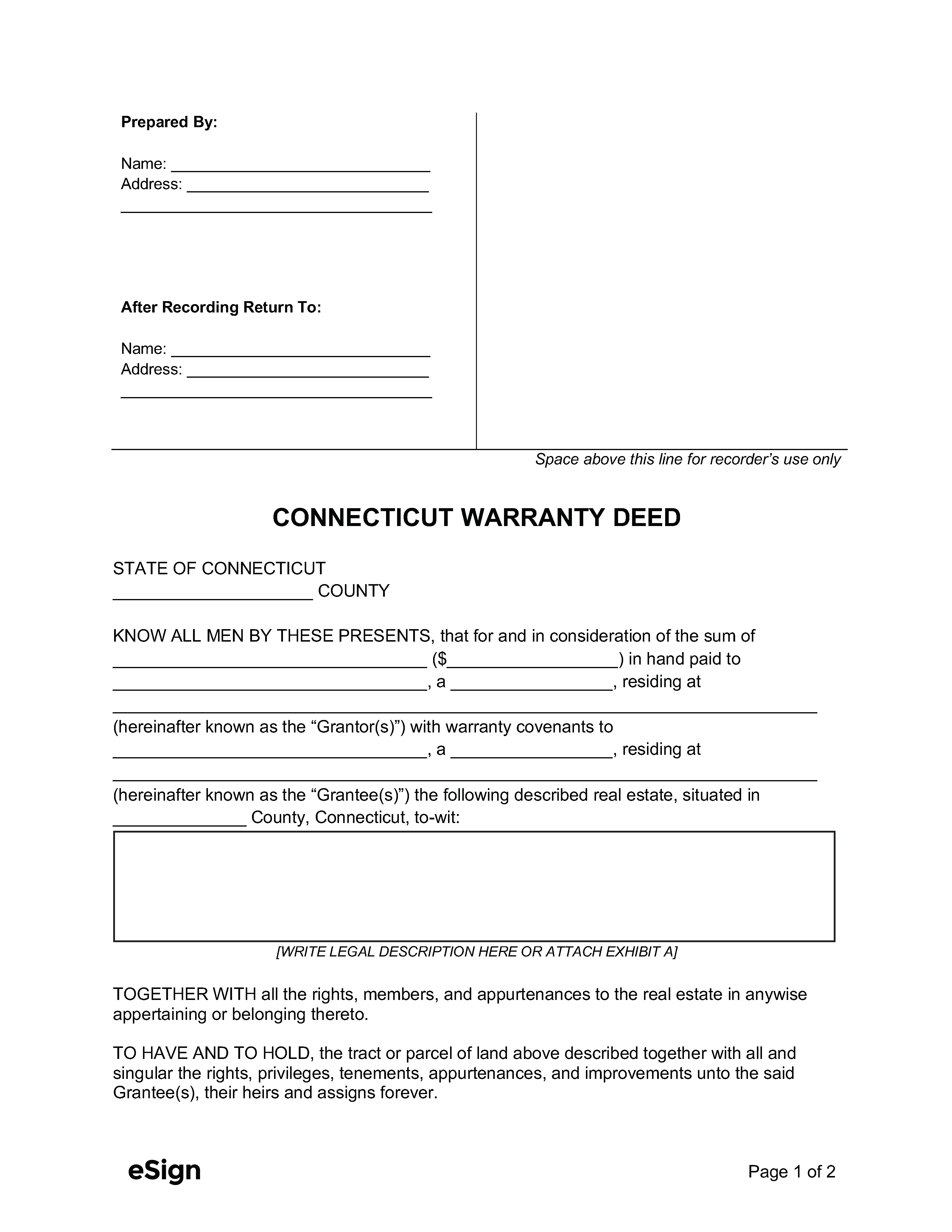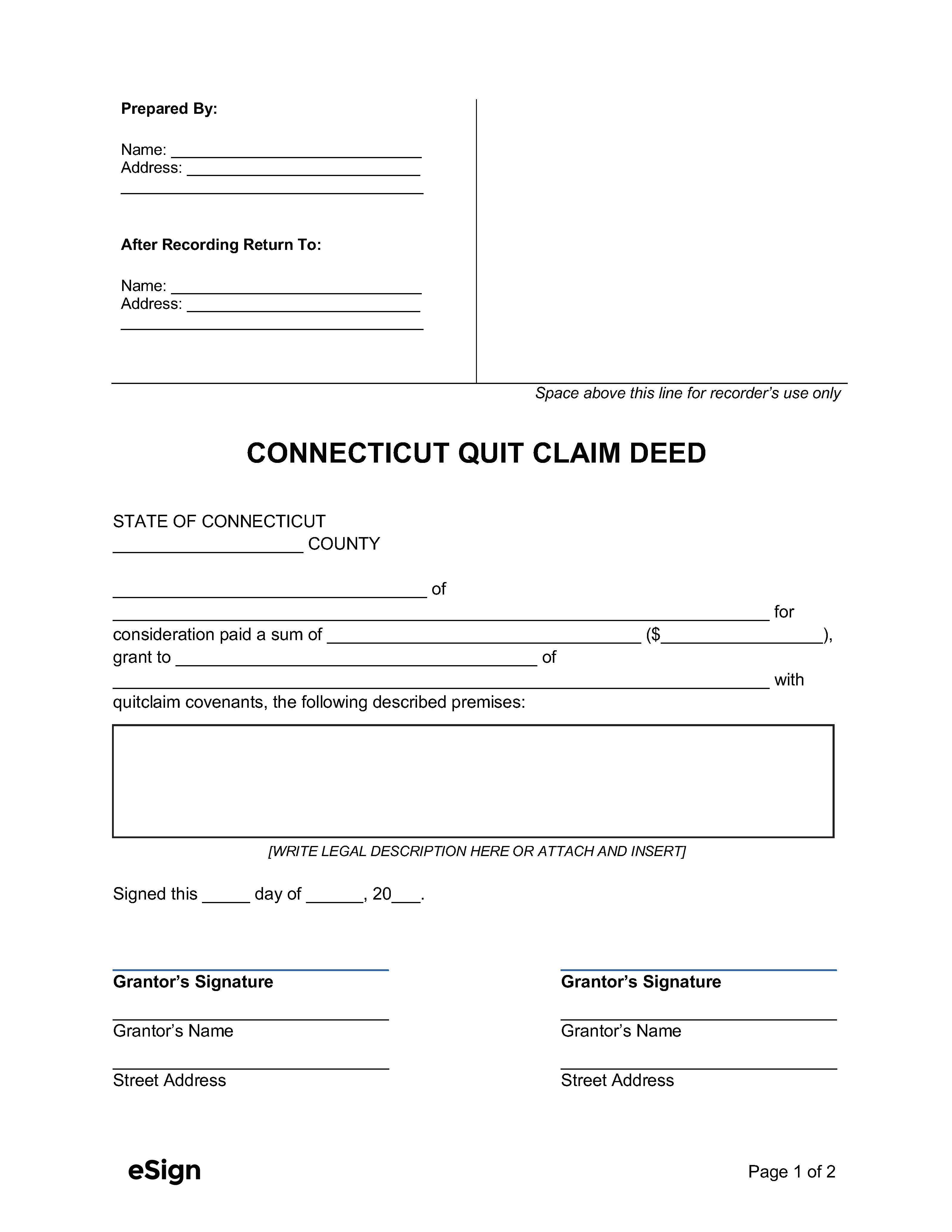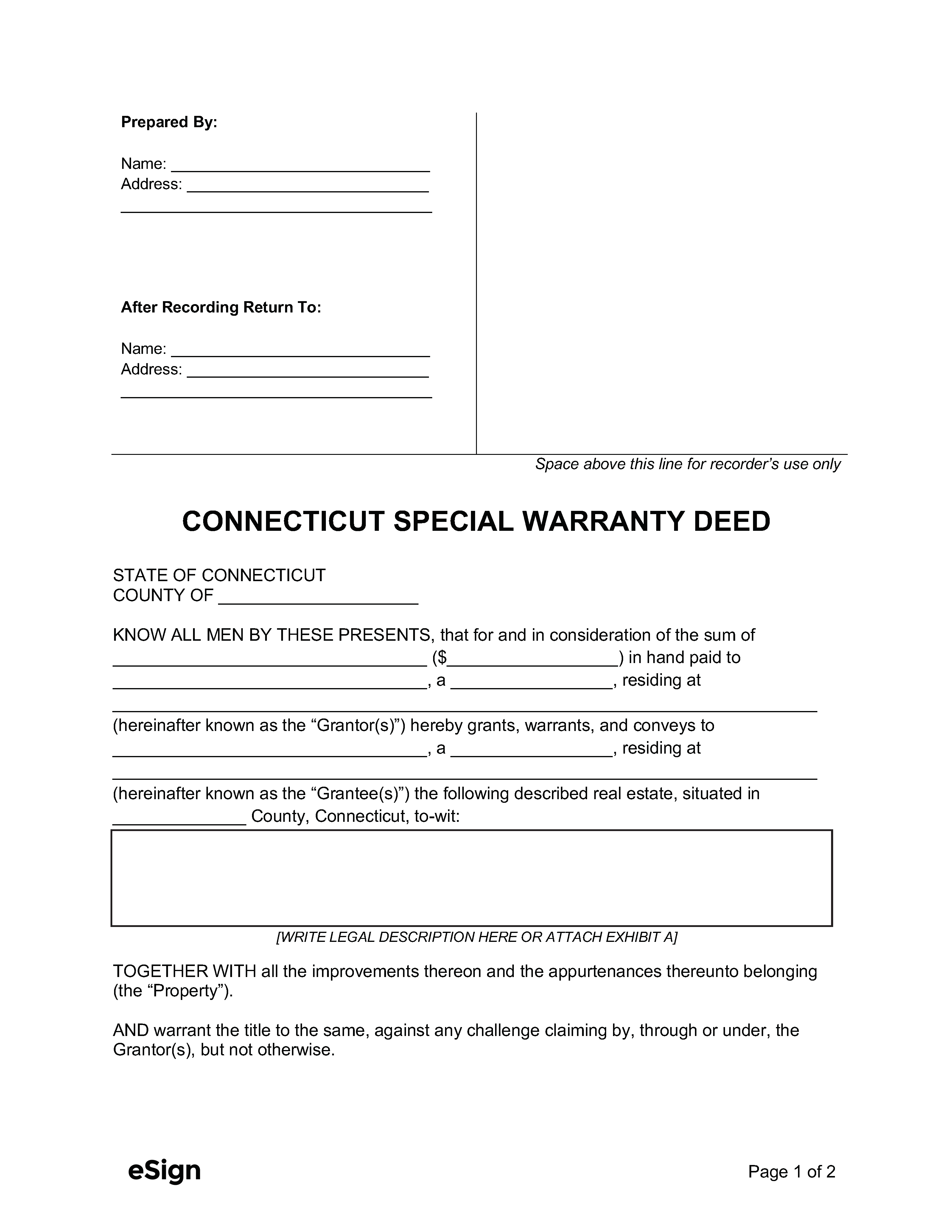By Type (3)
 General Warranty Deed – Guarantees that the property being sold is free of all liens and encumbrances. General Warranty Deed – Guarantees that the property being sold is free of all liens and encumbrances.
|
 Quit Claim Deed – Transfers the title of a property with no warranties against title defects or assurances that the grantor is the legal owner. Quit Claim Deed – Transfers the title of a property with no warranties against title defects or assurances that the grantor is the legal owner.
|
 Special Warranty Deed – Only guarantees the quality of the property title from the current owner’s period of ownership. Special Warranty Deed – Only guarantees the quality of the property title from the current owner’s period of ownership.
|
Formatting
Recording
Signing Requirements – Deeds must be signed by the grantor, a notary public, and two witnesses.[3]
Where to Record – Deeds must be recorded at the Town Clerk’s Office for the conveyed property.[4]
Cost – $60 for one page, $5 for each additional page (as of this writing).[5]
